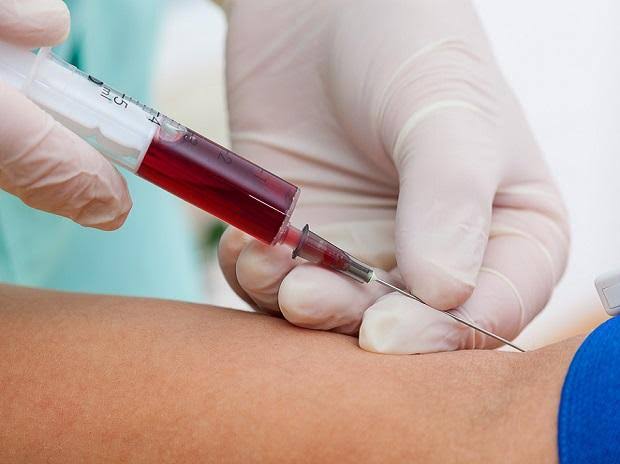
Blood tests are health markers for your body’s optimal functioning. Doctors usually order this test as the first step when they suspect something is wrong.
Blood tests at home are regular medical investigations that help find underlying health conditions in your body from the comfort of your home. You won’t need to leave your house. A blood technician will visit your home to take your blood sample and then send it to a lab for analysis. Doctors use the test results to understand your health status and prescribe treatments based on them. Regular tests ensure good health, but sometimes, certain signs and symptoms require immediate blood tests.
Symptoms to Get Blood Tests Done
You need to get a blood test done, if you observe the following signs:
- You experience fatigue and tiredness
Have you been feeling extra tired or weak lately? It’s something we all go through at times. But, if it has been going over two weeks without any reasonable explanation, then it’s time to see a doctor and get a blood test done. That tiredness can signify health issues, like anaemia or diabetes.
- You have unexplained weight loss or gain
Sudden weight gain or loss can be indicative of something serious happening in your body. If you’ve dropped or put on more than 5% of your body weight in six months, then don’t ignore it. Talk to a doctor. And, he/she will suggest a blood test to figure out what’s causing the change.
- You have a family history of certain medical conditions
If your family has a history of health issues such as heart diseases, stroke, or cancer, then you might be at a higher risk too. Keeping an eye on your health is key. Regular checkups and blood tests help you stay one step ahead and ensure you take the best care of yourself.
- You have chronic pain
Chronic pain stays for more than three months and can come from different health conditions such as arthritis, fibromyalgia, or even cancer. If you’re dealing with this kind of pain, then get a blood test done. Also, talk to a doctor to figure out the best way to manage it.
- You have ongoing treatment
If you have been diagnosed with a health condition such as diabetes, high cholesterol or vitamin deficiencies, then you may need regular blood tests to monitor the treatment progress.
What Are the Most Common Blood Tests?
CBC: Complete blood count (CBC) looks at your blood in detail. The test checks your red blood cells, white blood cells, and platelets. Plus, it keeps an eye on the size and volume of your red blood cells. It even measures how much haemoglobin you’ve got.
BMP: Basic metabolic tests take a peek into your blood to check the levels of glucose, calcium, urea nitrogen, creatine kinase, sodium, CO2, potassium, chloride, and globulin.
CMP: Comprehensive metabolic panel goes a step further than basic metabolic tests. It covers all the basics of BMP but also includes other tests, such as:
- Albumin, which helps assess kidney and liver function
- Alanine transaminase to gauge liver health
- Alkaline phosphatase for liver diseases or bone issues
- Ammonia levels to spot kidney or liver damage
- Bilirubin to check bile
- Aspartate transferase to assess liver health
Electrolyte test: Electrolyte is a mineral in your blood. Its imbalance can detect issues in your kidneys or lungs.
HbA1c test: This test is ordered to diagnose type 1 or 2 diabetes.
Thyroid test: This test measures how well your thyroid gland and metabolism are working. It checks the levels of TSH, T3, and T4 hormones.
Vitamin D test: Vitamin D helps in absorbing calcium and strengthening bones. This test checks if you lack vitamin D, giving doctors valuable information to treat you properly.
Vitamin B12 test: Vitamin B12 plays a vital role in making red blood cells and supporting the nervous system. Doctors may order this test if you’re experiencing symptoms such as weakness, dementia, loss of appetite, or anaemia.
What to Expect During a Blood Test?
Blood tests happen in a doctor’s clinic or lab. However, nowadays, you can also book a blood test at home. They use a small needle to draw blood from your vein, collect it in a tube, and send it to a lab. It’s safe and not too painful. You might feel a slight pinch or sting when they insert the needle. Later, you could have a bruise or feel sore, which may cause discomfort.
How to Prepare for a Blood Test?
Getting ready for most blood tests is pretty straightforward. No need for anything fancy, but a few tips can make it smoother:
- Stay hydrated: Drink some water before your test.
- Wear comfy, loose-sleeved clothes to make it easier to draw blood.
- Skip heavy meals right before your blood test.
- Tell your doctor about all the meds you’re taking, even the non-prescription ones and herbal supplements.
- For some tests, you may need to fast for at least 12 hours before the exam. Ask your doctor whether you can eat food before the test or not.
In conclusion, blood tests are vital for catching health issues early. If you pay attention to your body’s signals, then you can get tested and start treatment early. With blood tests at home, you can get your reports without leaving your place. However, talk to your doctor even if your results are normal. They’ll ensure you get the required care.
Syndicated press content is not written by ED Times



























